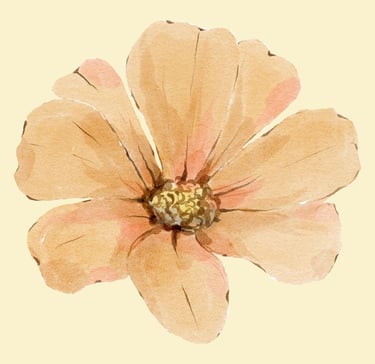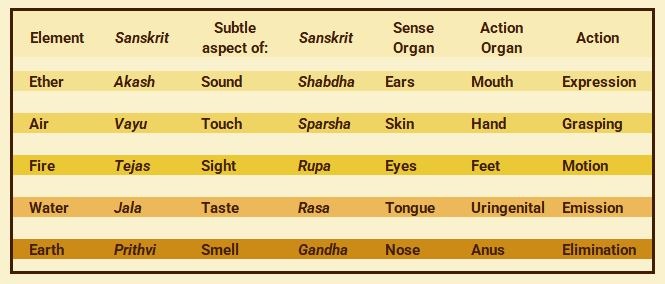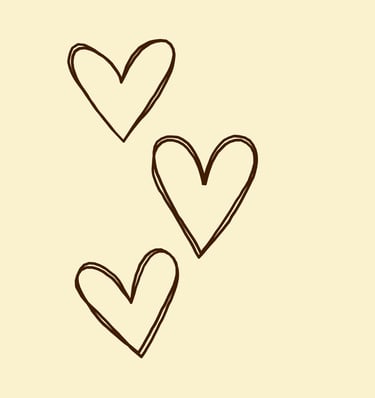AYURVEDA & ME - EDITION 4
6/12/20259 min read
Confession time!


This blog series is my offering to you, a chance to see how Ayurveda is weaved into my life & how you can apply these principles to your own life.
Welcome to the fourth edition of Ayurveda & Me!
Originally I had a skeleton idea for this blog which I will still share with you later but first up is a confession.....
I have recently found myself reaching for things I had not been having and hadn’t really missed. Now none of this has been a terrible drama but I do think it is important to recognise it. As I fully integrated Ayurveda into my life, I gave up coffee without a second thought, I wasn’t addicted to the caffeine hit, I just found it comforting (and habitual). I found a replacement called Nocaf made with barley and chicory root giving me a satisfying hug in a cup. I love a herbal tea but there is something more earthy about coffee – and its replacement.
So here is the confession, I have been drinking coffee, I enjoyed it and I had no obvious side effects. Next came the family holiday….more coffee –plus food I would not normally eat including desserts. Desserts are not normally tempting for me - what was going on here? Ironically, I only had one glass of wine for the whole week away but more on that later. While none of this seems like a big problem, and to some extent it wasn’t, what I noticed was fascinating. Over a couple of weeks my digestion became sluggish, my motivation dipped and I become less enthusiastic about cooking fresh, nourishing meals. What I witnessed was the accumulation of bad choices and how addictive we become in a short space of time. OK, addictive sounds a little dramatic but there was absolutely a tendency towards repeating habits. There is a positive in that this tendency works in both directions. It was time to turn this around and get back to my good habits.
For those of you in my Facebook group you will have seen me post about having kitchari for dinner for a whole week following the holiday. A chance to get my digestion back to full working order. I had allowed myself to have a couple of coffees but then made the agreement with myself to go back to my Nocaf full time.
This also confirmed how habits accumulate, both good and bad. For those of you making small changes, keep going and don’t allow any deviations to knock you back, just get back on track and keep moving forward.
Cause and effect in action….
Getting back to where I left off from Edition 3, let’s get on with Edition 4 and one of my favourite topics for Spring = Indryas –our 5 senses.
What you consume daily through our senses must be digested in the same way as the food and drink that you consume. This process happens during the pitta time of 10pm – 2pm, this is why it is important to be asleep by 10pm to allow your body the time and energy needed to digest your day. I find it interesting that our senses are linked to the natural elements, the table below sets these out.
I love how it sits neatly together….
Did anyone try the random pauses during their day? I’d love to hear from you if you did. If not take another look at Edition 3 to revisit Briony’s suggested practice.
We often dismiss our senses or worse still do not consider our senses in what we consume daily. Each impression made upon us requires processing. This digesting of impressions happens between 10pm & 2am – pitta time. This is why is it important to be asleep by 10am, to allow our day, both physical and emotional, to be fully processed, allowing us to wake up refreshed and ready to go again. Life often gets too busy which means not being present, not being present means we miss what our senses are experiencing. And it often takes us away from feeling connected and centred.
I find it interesting looking at how we use our senses and that how some choices take us away from our natural state of harmony, increasing our cravings whether for food and drink or other addictive habits. As I considered my next chapter in life it was clear that as much as I was aware of modern trappings I will still participating in too much of it. Seeking external rewards, justifying my choices with ‘I work hard and therefore deserve it’ mentality. The often short-lived high creates a need for a bigger and better high next time, and so the endless spiral continues.
Through an Ayurvedic lens this is known as the klesha’s, an unavoidable part of the human experience, the ultimate vicious circle as it were.
According to Yogic and Buddhist philosophy the kleshas are seen as the cause of suffering.
The five kleshas are:
1. Avidya is ignorance and misunderstanding, a lack of insight. By forgetting you are eternal spirit rather than allowing your ego free reign. Not being connected to your inner Self it is easy to be swept along by the ego. A lack of awareness is further compounded by the busy world we live in. Distorted thinking leads to disconnection.
2. Ahamkara is your ego. The ego creates and allows a limited sense of being, believing you are separate from the universe. This separation creates attachment, an illusion of control leading to further attachment.
3. Raga is attachment and addiction. A desire for materialistic gains, short-term and short-lived pleasure at the expense of long-term joy and happiness – and ultimately wellbeing. By not reaching or achieving your perceived desires you will in turn cause pain and suffering. The short lived high is no longer enough so you seek increasing highs. This can manifest in craving more materialism in the form of more of what you have or a better (and likely more expensive) version of ‘stuff’ or cravings for food, drink or drugs. I am sure we can all identify with this cycle in some shape or form.
4. Dvesa, or aversion, includes negative emotions such as hatred, loathing and envy. It clouds your judgement, leading to distorted thinking and fear. The lack of clarity driving more poor choices.
5. Abhinivesa is the fear of death and loss of life. This feeling can penetrate your whole being, the fear of death is very real but is amplified by the fear of the unknown. Getting comfortable with the body and its purpose can be helpful but your internal spirit is exactly that….eternal.
By remaining on a spiritual path you can use the kleshas to increase your spiritual growth. Choosing wisely, being kind and being gentle with yourself will bring you closer to understanding your true nature. Awareness of the kleshas is the first step towards on that journey. Awareness of your own Self talk is also a skill worth working on. Afflictions are part of the human experience, so not uncommon. As humans it is easy to become addicted to anything not just certain food or drink. We can get addicted to pretty much anything. Something I have contemplated often is the difference between real addiction and just wanting or fancying something. Self talk and the ability to justify almost anything is rather astounding!
For me a key lesson that I have learned not just through study but through lived experience is that my inner and outer world need to be aligned. Without that there is a lack of peace and harmony plus it is harder to remain connected with your Self. It takes practice but in time it becomes easier to recognise old patterns. It also takes a certain amount of commitment, to be honest with yourself and hold yourself accountable but once you reach that place of inner peace you won’t want to lose it. That is the big reward, you then strive to stay in that place of peace. Whenever I feel that my peace is becoming disturbed I physically check in with where my shoulders are….too close to my ears is a sure sign that I need to take action!
So we’ve had one confession….here is the next one. Alcohol…..
For me, a glass of fizz or a cold G&T as I logged off at 5pm felt ‘justified’ after a particularly busy or stressful day but it rarely stopped at one or two. One of the biggest decisions about fully integrating Ayurveda into my life was to deal with alcohol. My consumption wasn’t out of control but it was most definitely a habit. Was I addicted or was it only a bad habit, or is that the same thing? My drinking had changed over the years but I was still a social drinker, then things got a little worse when my husband built a bar in the garden during lockdown!! That certainly didn’t help having a selection of alcohol on tap….
I understood the toxicity of alcohol, I understood how it affected my wellbeing yet I had carried on drinking. The decision to tackle alcohol stirred up all kinds of thoughts. Mostly I worried about what others would think. But why? What did it matter what they thought? Fear often drives poor decision making or the ability to even make a decision. FOMO was definitely a big thing here but what would I be missing exactly?
To be clear, I haven’t given up alcohol completely, I have been lucky in that my willpower has enabled me to have an occasional drink without getting derailed. All I can say is that saying no has become like a muscle, the more I say no to myself the stronger I feel. I decided that giving up completely might lead to cracking and feeling disappointed so this half way house feels right for me. After all Christmas morning always starts with champagne in our house and that is likely to remain the case! My new habit is one of restraint, it means that if I decide to have a drink I know it will only be one or two. My new habit is about control & choice. The strange this is I sometimes enjoy it and sometimes I wish I hadn’t bothered. I had a glass of wine at the pub while on holiday recently and I felt completely indifferent about it. These experiences, by really listening to how I feel make it easy as time passes to make better choices. Why did I have a glass of wine? Being honest I don’t really know, only the fear of missing out hits! I wouldn’t go so for as to say I regret having it, just that it proved underwhelming and really added nothing to my experience. The more this happens the easier I find saying no at other times. The crucial thing for me is learning to witness what was happening with alcohol, to take a step back to assess what was driving my habit.
What has this meant for my health? No more hangovers = bonus! I lost that niggling half a stone around my middle that wouldn’t seem to shift. No more bad food choices late at night or trying to fix a hangover the next day. The best thing I have achieved was navigating menopause without any symptoms. I believe my Ayurvedic lifestyle allowed my hormones to rebalance themselves allowing me to breeze through a phase of womanhood that most dread. I know that alcohol would have caused more imbalance at a time when my mind and body needed nourishment. At 51 I know it is possible to walk through menopause without suffering, I did exactly that!
The simple act of committing to any Ayurvedic lifestyle – and it is a lifestyle not just a new fancy diet plan – has brought countless benefits to my life. Of course, I embraced it wholeheartedly but once you begin to see changes, once you gain that clarity of thought and witness cause and effect, all of the benefits start to accumulate too. I explain to clients that whilst bad habits and choices accumulate toxins and eventually lead to dis-ease, good choices and habits accumulate benefits too.
Ayurveda is not a quick fix, some shifts will bring about quick results and it is absolutely right to start with small steps but this is a lifelong, holistic approach to health and wellbeing. You have to be ready to DO SOMETHING DIFFERENT. I was ready. Are you ready?


“Ignorance, ego, addiction to pleasures, aversion to anything unpleasant and fear of death are the main causes of afflictions.”




From the Yoga Sutras of Patanjali, 2.3:
Join my Facebook Group - Inner Nourishment or follow me on Instagram





